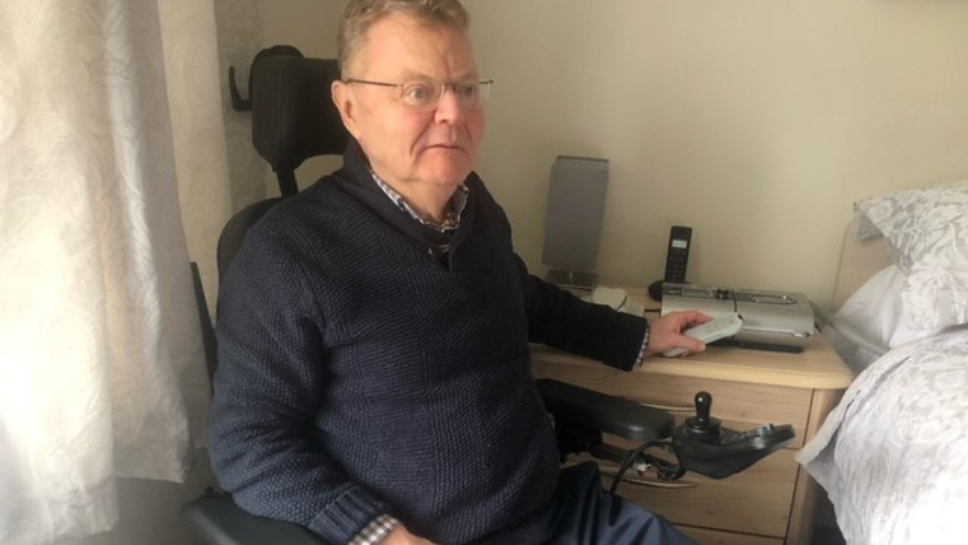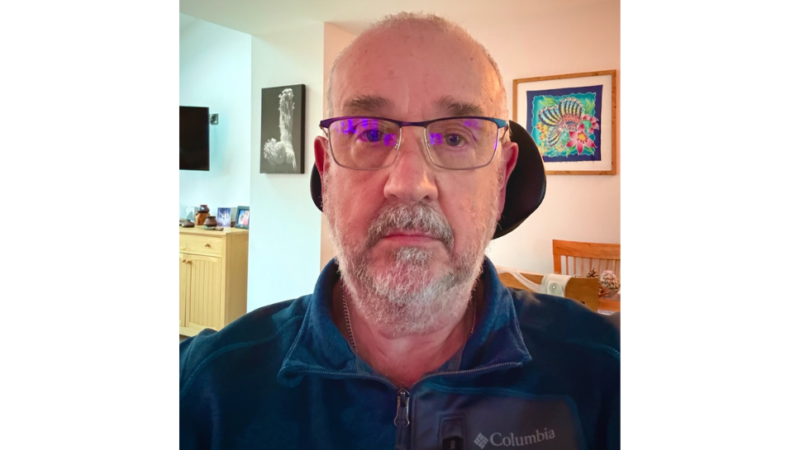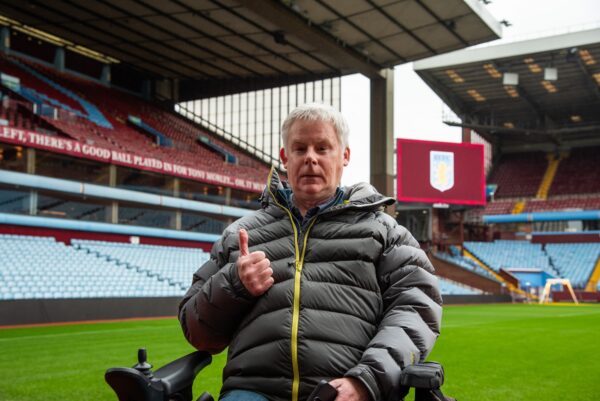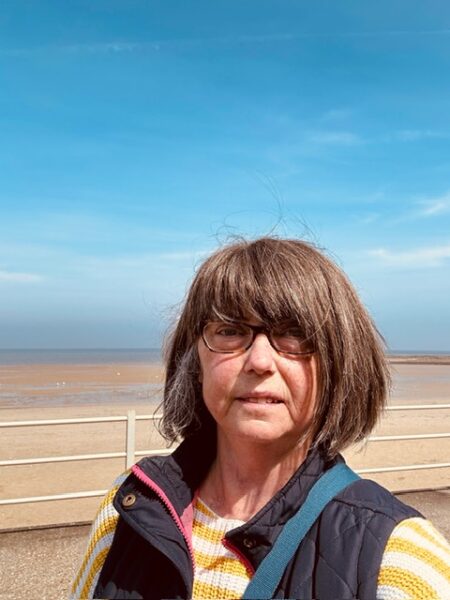Trevor, who’s 62, has Becker muscular dystrophy. He took early retirement eight years ago and now volunteers as a peer support volunteer with Muscular Dystrophy UK. Following the launch of our recent cost of living report, Trevor shares how the financial crisis is limiting his freedoms and becoming increasingly worrying.
“We have to worry about whether we can afford to look after ourselves”

Having a muscle-wasting condition means there are lots of additional costs, which other households don’t have to think about. For example, my electric bill – that’s shot up. I’ve got to charge my two power wheelchairs and an electric hoist. I can’t use a manual wheelchair because the muscle weakness in my arms means I can’t get out of it.
I’ve got a continuous positive airway pressure (CPAP) machine, which helps me breathe while I sleep. So, that goes all night with electricity. I need it for living, I need it to get a good night’s sleep, other people don’t have that.
My condition affects my heart, so, I also have a defibrillator in my chest and a machine plugged in that sends signals to the hospital. They’re plugged in all the time.
Plus, with muscle-wasting conditions, you need to keep warm. You don’t want your temperature to go down and affect your heart. Particularly with conditions like mine, you don’t want to put undue stress on yourself. I’m not going to stop heating my home. I don’t have a choice.
Paying for adaptations
I’ve also had to pay for adaptations which help me do day-to-day things like getting out of bed or going to the toilet. I had to pay for my bathroom to be converted into a wet room and for a special electric toilet which cleans you and goes up and down. It wasn’t offered through social services in my case, but it’s my personal hygiene and it gives me independence.
My power wheelchair was paid for by the NHS and I got a grant towards the cost of converting my car into an adapted vehicle, which cost about £25,000. Whilst I’ve got my Personal Independence Payments, half of that goes towards my car. Where I live in my village, if I didn’t have it, I couldn’t go anywhere, so it’s a necessity for me.
The cost of care
A few years ago, my mum moved in with me. Although she’s 92, she can help me with some of my personal care, which hugely keeps the costs down. I already pay £309 a month for my care. That’s only half an hour a day to help me get up in the morning. If my mum wasn’t here, it would be a lot more – if a carer visited four times a day for half an hour, that would be £1200 a month. It’s a bit worrying.
There’s always uncertainty with being disabled or being able, but with muscular dystrophy, we have to worry about not only our condition but also about how we’re going to be looked after and whether we can afford to look after ourselves.
Going out less
Although I’ve got my power wheelchair which enables me to go further afield and do things, I’m finding that we don’t tend to go far or have many days out in the car now due to the cost of living. You know, with the cost of care, bills, food, living costs, all these costs coming together – I tend to stay at home.
What savings I have got, I want to be using that to go on holiday, or to do things out more, because whatever you do it costs money. To go out in the car costs money for petrol. You can go for a walk in your wheelchair, it’s free of charge, but you’ve got to get there, and there’s entrance fees, or concert tickets, whatever it is, it costs.
It affects my wellbeing
The current situation is worrying for me. With the weakness in my arms, I think “will I get to the stage where I can’t feed myself?” and stuff like that. But you get on with it. We don’t know what life is going to bring us tomorrow, or how long we’ve got. The cost of living crisis is impacting us all, in many ways.
With muscle-wasting conditions, we know how they are going to progress. We should be able to plan for the support we need before we get to that stage and without reassessments all the time.
We’ve got a shortened life, or possibly a shorter life than most people. We shouldn’t be punished and have these burdens around our necks.
Don’t get me wrong, I don’t want the government to pay everything for us. But I feel that we should have more help in terms of our general well-being.
Calling for change
What would help the most is if we weren’t expected to pay for our care. In my case I pay for my care, I don’t know if everyone’s the same. I could be paying substantial amounts of money per month just for my care, just to live, just to exist. That worries me. That’s my biggest worry going forward. Care costs. You know, living costs. All these costs going together.
To keep warm is a necessity. All bills on our homes should be VAT free for people with muscular dystrophy, including broadband and phone.
There also needs to be more consistency in the help we get from the NHS or social services across the country. A friend with Becker muscular dystrophy, who’s older than me, recently bought a second-hand power wheelchair using his retirement savings because he needs it to go places beyond his house. He uses a manual wheelchair at home but told me he can’t have a power wheelchair from the NHS.
I said to him, “you need to have independence outside the house as well, you can’t be a prisoner in your own home.” He said, “it’s a waste of time to ask for these things.” That’s got to change.
We understand that these are difficult times and that you may be experiencing distress and concern. If you are struggling with the rising cost of living and want to know what help is available, please contact our Information, Advocacy and Care team on 0800 652 6352 or info@musculardystrophyuk.org, who can support you to access the information you need.
The impact of the cost of living crisis is far-reaching, with worrying consequences for people living with muscle-wasting conditions. Read our report and policy recommendations.
We want to hear about how you are being affected by rising costs. If you would like to share your experiences, email stories@musculardystrophyuk.org


